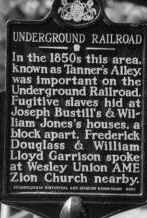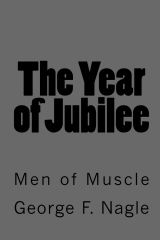
Study Areas:
Anti-Slavery
August 1816: Wagonmaker Pharaoh Evans leaves Winchester with his owner's son
100
Dollars Reward.
Ran away from the subscriber, living in Winchester, Va. on the night of
the 17th August last, a Negro man named Pharaoh Evans, by trade a waggon
maker, 5 feet 9 or 10 inches high, 33 years old, slim made, his nose somewhat
pitted with the small pox, and has a mark, occasioned by a fellon, on one
of his hands not recollected which; no other marks by which he can be particularly
described--speaks quick, and pretends to a great share of knowledge.
He took with him a handsome suit of black cloth, also one of brown, a brown roundabout, which he commonly wore whilst at work, two pair of home made linen trowsers, a home made shirt of the same, some muslin shirts & a new fur and wool hat, with a variety of other clothing not recollected, also two silver watches.
He is perhaps as accomplished a villain as any of his colour. He went off in company with my son Conrad, who, I regret to say, is much addicted to strong drink--he is a thick set man, and took with him but few clothes, having spent them in drinking--he can write English and will possibly furnish Pharaoh with a pass.
They took with them an ice grey mare, saddle and bridle. The mare is between 14 and 15 hands high, about 5 years old, worth about 40 dollars--is in indifferent order. I will give the above reward for securing said Pharaoh and mare, and lodging the former in any jail so that I may get him again--but if they have parted from the mare I will nevertheless pay the above reward for Pharaoh alone.
Conrad
Crebs, Sen.
September 13.
Source: Lancaster Journal, Wednesday morning, 9 October 1816.
Editor's Notes: According to Conrad Crebs, Pharaoh Evans "has a mark, occasioned by a fellon, on one of his hands." A fellon, or felon, more commonly called a whitlow, is an infection at the tip of the finger. While obvious life threatening illnesses or injuries to slaves usually received the attention of a local doctor, it was not uncommon for minor medical issues in slaves to be ignored, or left to home remedies and herbal treatments. Thus the relatively minor infection from a whitlow may have been allowed to fester, resulting in a severe infection which seems to have left a noticeable scar on one of his hands.
Conrad Crebs (Konrad Krebs) was a Hessian mercenary, born in Luetzelhausen in 1760, who fought under General Burgoyne as a musketeer in Company 1 of the Hesse-Hanau Erbprinz regiment against the American patriot troops. He was captured and taken to Charlottesville and later Winchester, Virginia, as a prisoner of war. He remained in Winchester until after the war, married an American woman and settled in Winchester as an American farmer. This helps explain his observation that his son, Conrad Crebs, Jr., "can write English." Conrad Crebs Sr. married Lucy Brunner in 1784.
 Covering
the history of African Americans in central Pennsylvania from the colonial
era through the Civil
War.
Covering
the history of African Americans in central Pennsylvania from the colonial
era through the Civil
War.
Support the Afrolumens Project. Buy the books:
The Year of Jubilee, Volume One: Men of God, Volume Two: Men of Muscle

